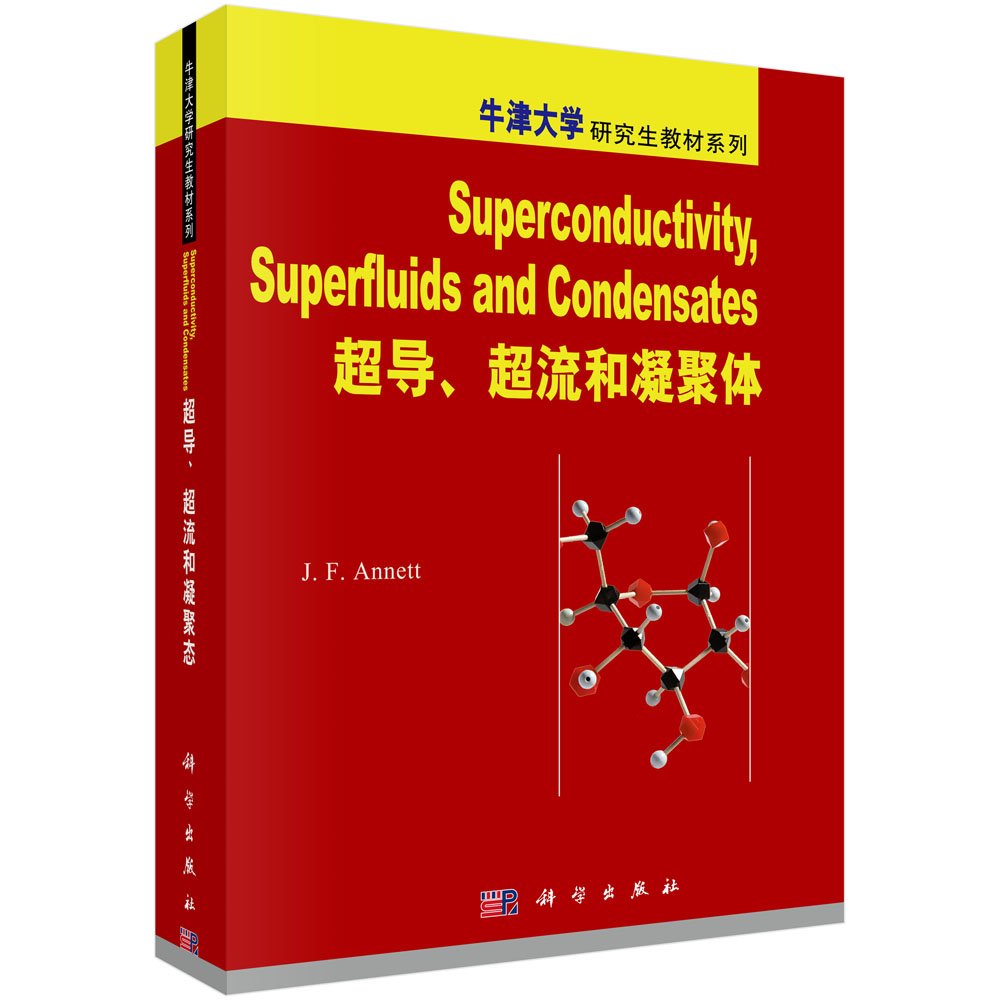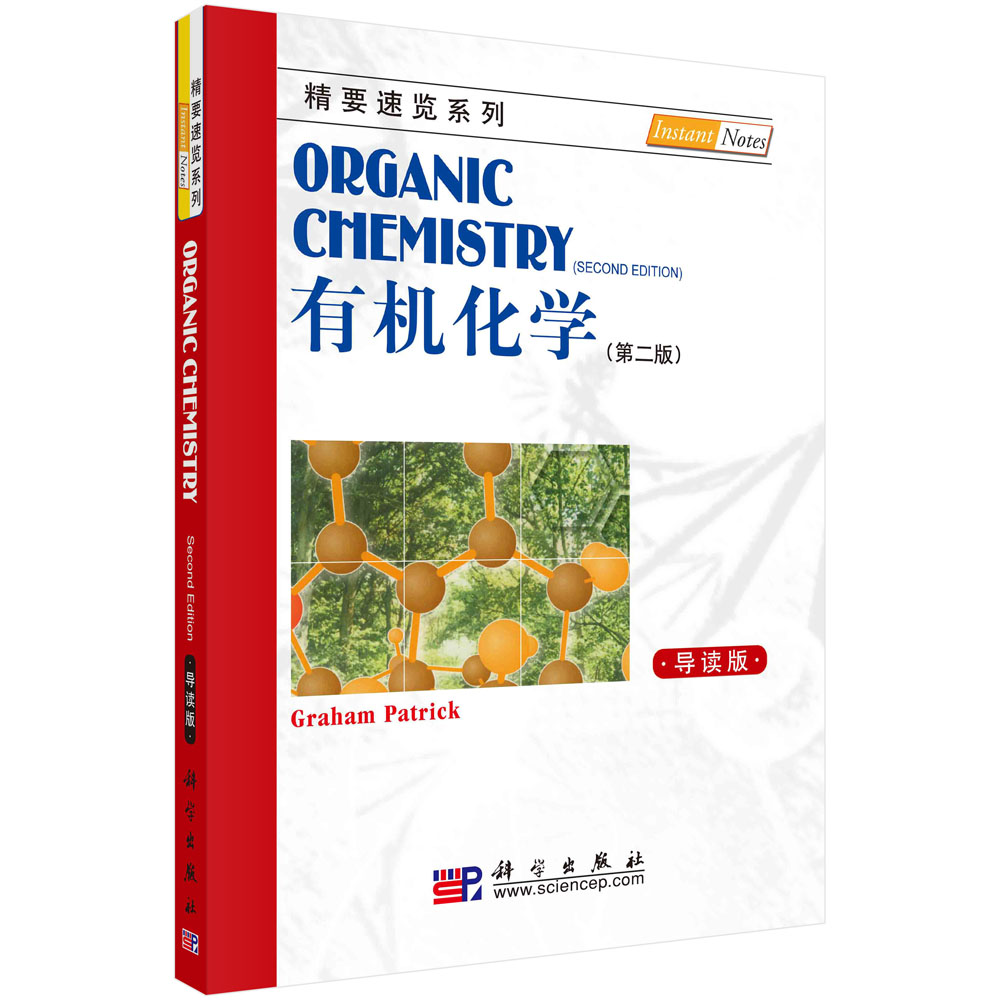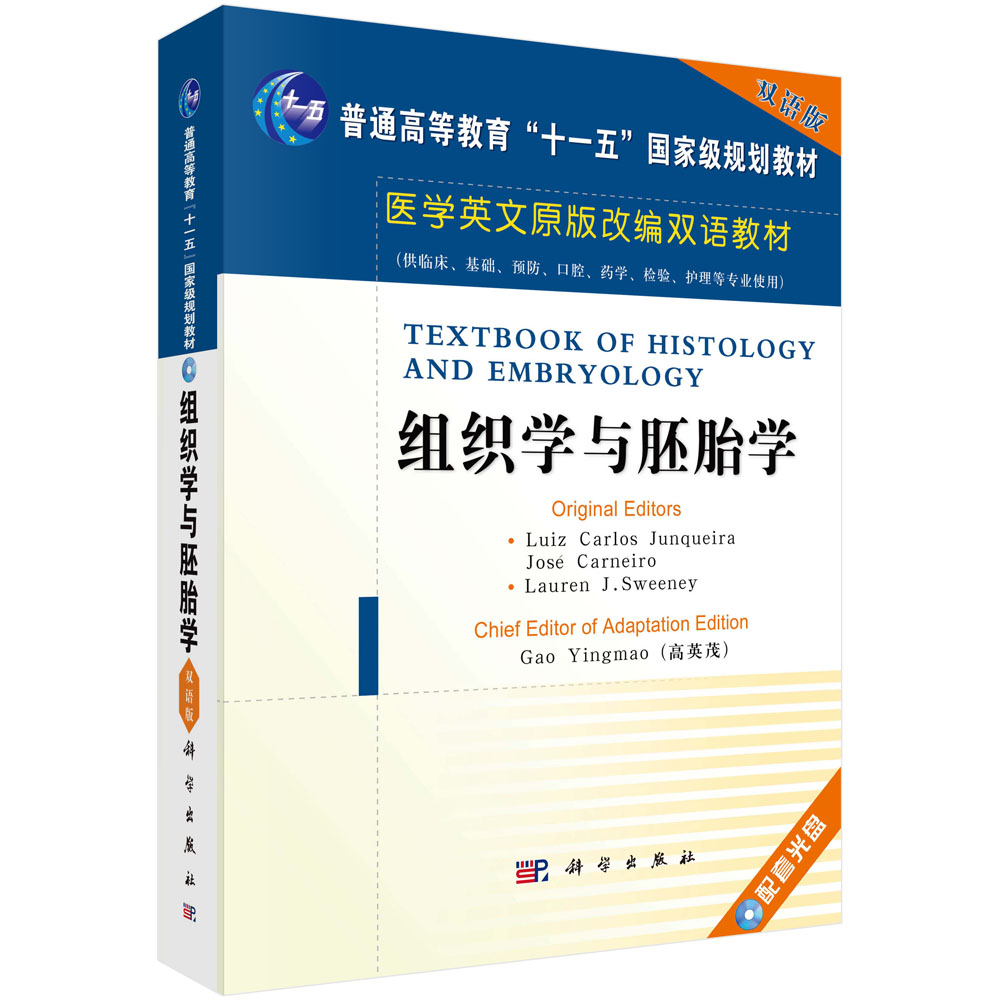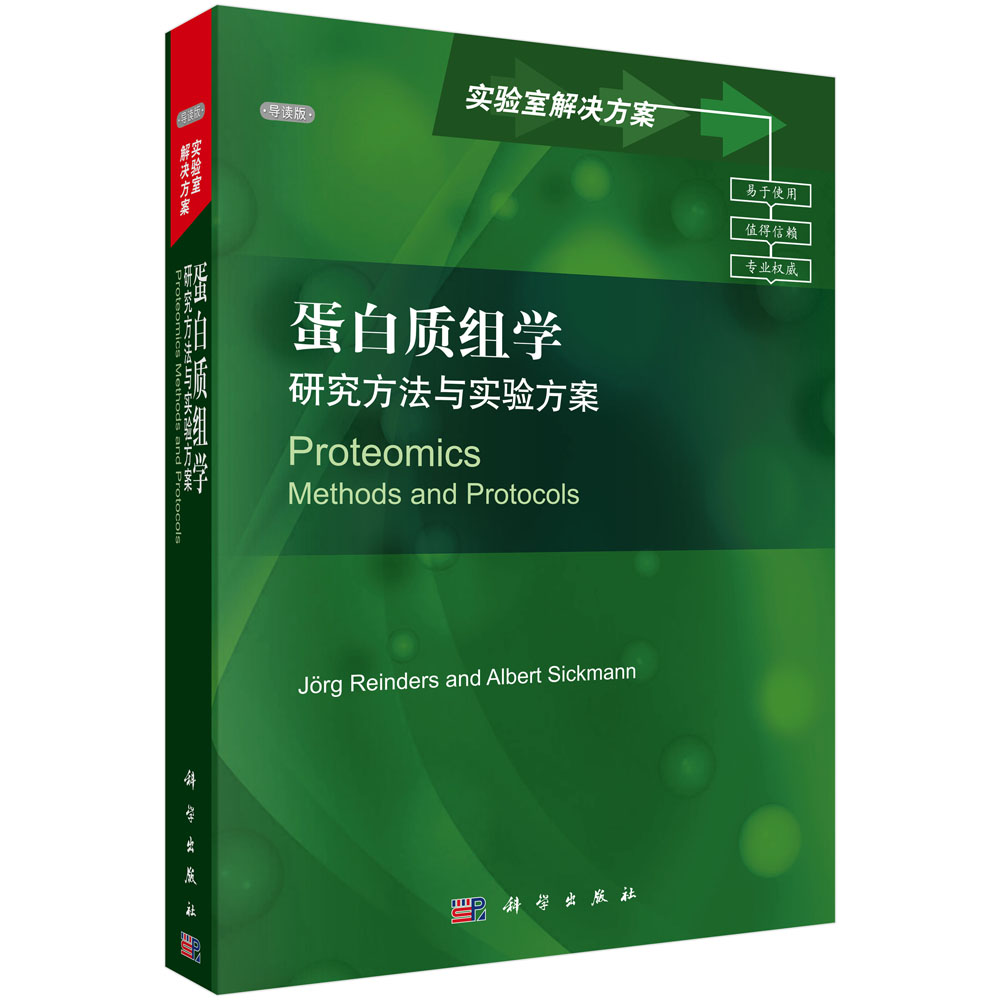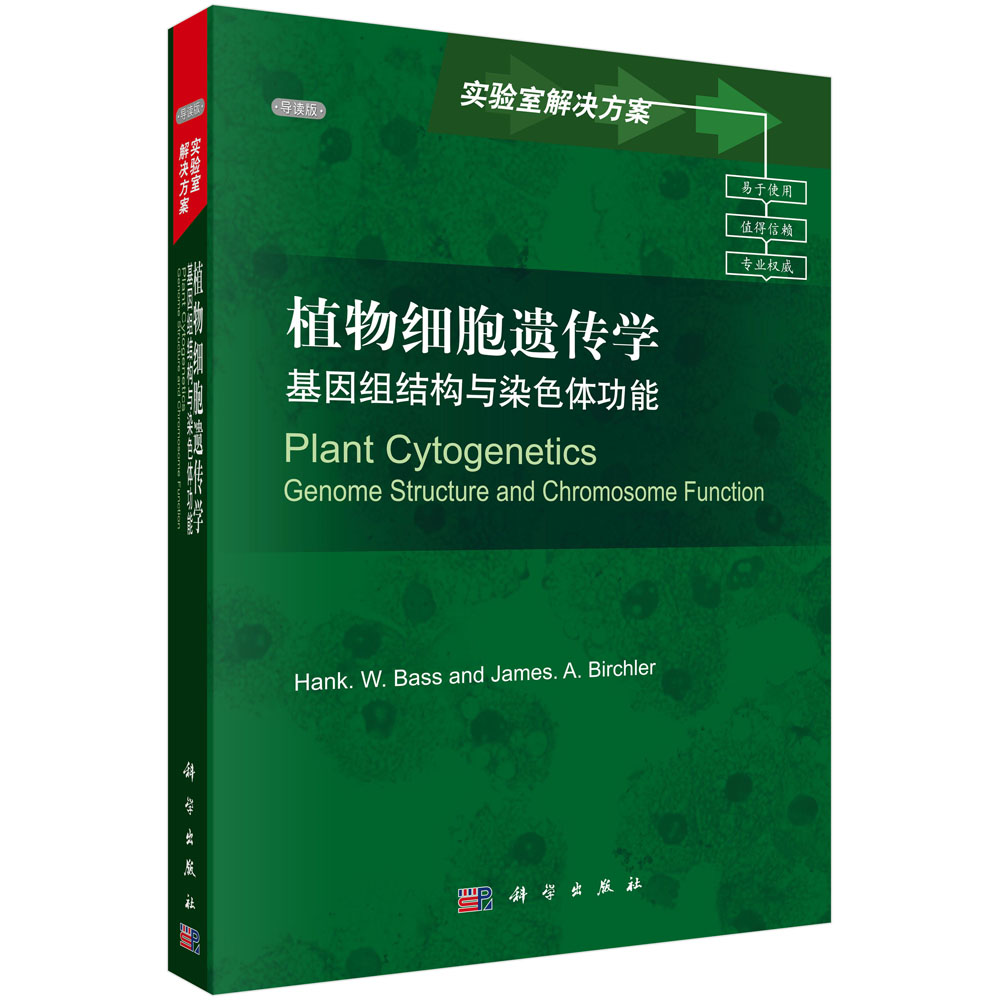本书是我国高等医学院校留学生本科教学和中、英双语教学班教学的生物化学教材,内容为医学专业学生应该掌握的基础理论、基本知识与基本技能,同时也兼顾了国家执业医师考试的要求。全书共21章,内容包括蛋白质、核酸和酶的结构与功能;糖、脂、氨基酸和核苷酸的代谢,以及生物氧化和代谢调节;DNA、RNA和蛋白质的生物合成,基因表达的调控及DNA技术;生物膜、糖复合物与细胞外基质、细胞信号转导,癌基因、抑癌基因与生长因子;肝胆、血液、维生素与无机物的生物化学。全书有插图348幅,表69个。本书特别注重在华留学生和双语教学的需要,重要的英文生化专业名词与术语均在其后标出相应的中文,并在书后附有名词释义,给出简洁、准确的概念。各章后均有中、英文内容摘要。
样章试读
目录
- Contents
Note
Preface
Introduction 1
Chapter 1 Structures and Functions of Proteins 3
1.1 Amino Acid Compositionin Proteins 3
1.2 Molecular Structures of Proteins 6
1.3 Structure-Function Relationships of Proteins 14
1.4 Protein Physicochemical Properties and Principles of Purification 18
1.5 Proteome and Proteomics 22
Summary 24
Chapter 2 Structures and Functions of Nucleic Acids 26
2.1 The Structural Units of Nucleic Acids—Nucleotides 26
2.2 Structures and Functions of DNA 28
2.3 Structures and Functions of RNA 31
2.4 Properties of Nucleic Acids 34
2.5 Nucleases 36
2.6 Genomics and the Human Genome Project 37
Summary 37
Chapter 3 Enzymes 40
3.1 Structure and Function of Enzymes 40
3.2 Properties and Catalytic Mechanisms of Enzymes 42
3.3 Kinetics of Enzyme-Catalyzed Reactions 45
3.4 Regulation of Enzyme Activity 53
3.5 Nomenclature and Classification of Enzymes 55
3.6 Clinical Applications of Enzymes 56
Summary 58
Chapter 4 Carbohydrate Metabolism 60
4.1 Digestion and Absorption of Carbohydrates 60
4.2 Anaerobic Degradation of Glucose 61
4.3 Aerobic Oxidation of Glucose 64
4.4 Glycogen Formation and Degradation 69
4.5 Gluconeogenesis 73
4.6 Pentose Phosphate Pathway 76
4.7 Blood Sugar and Its Regulation 78
Summary 80
Chapter 5 Lipid Metabolism 81
5.1 Fatty Acids and Derivatives of Polyunsaturated Fatty Acids 81
5.2 Digestion and Absorption of Lipids 84
5.3 Metabolism of Fats 85
5.4 Metabolism of Phospholipids 94
5.5 Metabolism of Cholesterol 97
5.6 Metabolism of Plasma Lipoproteins 100
Summary 106
Chapter 6 Biological Oxidation 109
6.1 Electron Transport Chain 109
6.2 Oxidative Phosphorylation 114
6.3 ATP and the Other High Energy Compounds 118
6.4 Selective Transport across the Inner Mitochondrial Membrane 119
6.5 Other Biological Oxidations 121
Summary 122
Chapter 7 Protein Catabolism 123
7.1 Nutritional Roles of Dietary Proteins 123
7.2 Digestion, Absorption and Putrefaction of Proteins 124
7.3 Degradation of Proteins in Cells 125
7.4 General Catabolism of Amino Acids 126
7.5 Metabolism of Ammonia 130
7.6 Individual Amino Acid Catabolism 133
Summary 141
Chapter 8 Nucleotide Metabolism 143
8.1 Biological and Medical Functions of Nucleotides 143
8.2 Degradation of Nucleic Acids 144
8.3 Metabolism of Purine Nucleotides 144
8.4 Metabolism of Pyrimidine Nucleotides 147
8.5 Deoxyribonucleotide Biosynthesis 150
8.6 Biosynthesis of Nucleoside Diphosphates and Nucleosides Triphosphates 151
8.7 Dysmetabolism of Nucleotides and Antimetabolites 151
Summary 153
Chapter 9 Regulation of Metabolism 155
9.1 Metabolic Regulationat Cell Level 155
9.2 Metabolic Regulationat Hormone Level 161
9.3 Regulation of Metabolismat Integral Level 162
Summary 164
Chapter 10 DNA Biosynthesis 166
10.1 General Features of DNA Replication 166
10.2 Eukaryotic DNA Replication 168
10.3 Prokaryotic DNA Replication 174
10.4 Other Modes of DNA Replication 177
10.5 DNA Damage and Repair 179
Summary 183
Chapter 11 RNA Biosynthesis 184
11.1 Overview of Transcription 184
11.2 Transcriptionin Eukaryotes 185
11.3 Processing of Eukaryotic RNA 189
11.4 Transcriptionin Prokaryotes 194
11.5 RNA-Dependent RNA Synthesis 197
Summary 197
Chapter 12 Protein Biosynthesis 199
12.1 Machinery Involved in Translation 199
12.2 Amino Acid Activation 203
12.3 Protein Biosynthesis Journey 204
12.4 Protein Posttranslational Modifications and Targeting 211
12.5 Clinical Correlation of Protein Biosynthesis 216
Summary 218
Chapter 13 Regulation of Gene Expression 220
13.1 General Characteristics of Gene Expression 220
13.2 Regulation of Gene Expression in Prokaryotes 222
13.3 Regulation of Gene Expression in Eukaryotes 227
Summary 231
Chapter 14 DNA Technology 233
14.1 Genetic Engineering 233
14.2 Molecular Hybridization 239
14.3 Polymerase Chain Reaction 242
14.4 DNA Sequencing 245
14.5 Transgenesis, Animal Cloning and Gene Knockout Technologies 246
14.6 Gene Diagnosis 249
14.7 Gene Therapy 251
Summary 253
Chapter 15 Biomembranes 255
15.1 Molecular Compositions of Biomembranes 255
15.2 Structures of Biomembranes 258
15.3 Transportation Functions of Biomembranes 260
15.4 Biomembrane and Medicine 264
Summary 266
Chapter 16 Glycoproteins, Proteoglycans and Extracellular Matrix 267
16.1 Structures and Functions of Glycoproteins 267
16.2 Structures and Functions of Proteoglycans 273
16.3 Extracellular Matrix 276
Summary 279
Chapter 17 Signal Transduction 281
17.1 Signal Molecules 281
17.2 Receptors 282
17.3 Signal Transduction Pathways 287
17.4 Interrelationship between Signal Transduction Pathways 294
17.5 Signal Transduction and Medicine 294
Summary 295
Chapter 18 Oncogenes, Tumor Suppressor Genes and Growth Factors 297
18.1 Oncogenes 297
18.2 Tumor Suppressor Genes 301
18.3 Growth Factors 304
Summary 306
Chapter 19 Blood Biochemistry 308
19.1 Plasma Proteins 308
19.2 Blood Coagulation 311
19.3 Metabolism of Blood Cells 316
Summary 321
Chapter 20 Liver Biochemistry 323
20.1 The Role of Liverin Material Metabolism 323
20.2 Hepatic Biotransformation 325
20.3 Metabolism of Bile Acids 330
20.4 Bile Pigment Metabolism and Jaundice 333
Summary 338
Chapter 21 Vitamins and Minerals 340
21.1 Fat-Soluble Vitamins 340
21.2 Water-Soluble Vitamins 344
21.3 Calcium, Phosphorus and Magnesium Metabolism 350
21.4 Trace Elements 353
Summary 355
Appendix A Greek Alphabets 357
Appendix B Prefixes of System International Unites 358
Appendix C The Numeral Prefix of Chemical Compounds 358
Appendix D Some Common Used Biochemical Abbreviations 359
Appendix E Index 363
Appendix F The Majar References 376
Glossary 377
目录
本书使用说明
前言
绪论 1
第1章 蛋白质的结构与功能 3
1.1 蛋白质的氨基酸组成 3
1.2 蛋白质的分子结构 6
1.3 蛋白质结构与功能的关系 14
1.4 蛋白质的理化性质及其纯化原理 18
1.5 蛋白质组与蛋白质组学 22
小结 24
第2章 核酸的结构与功能 26
2.1 核酸的结构单位——核苷酸 26
2.2 DNA的结构与功能 28
2.3 RNA的结构与功能 31
2.4 核酸的性质 34
2.5 核酸酶 36
2.6 基因组学与人类基因组计划 37
小结 37
第3章 酶 40
3.1 酶的结构与功能 40
3.2 酶促反应的特点与机制 42
3.3 酶促反应动力学 45
3.4 酶活性的调节 53
3.5 酶的命名与分类 55
3.6 酶的临床应用 56
小结 58
第4章 糖代谢 60
4.1 糖的消化与吸收 60
4.2 葡萄糖的无氧降解 61
4.3 葡萄糖的有氧氧化 64
4.4 糖原的合成与分解 69
4.5 糖异生作用 73
4.6 磷酸戊糖途径 76
4.7 血糖及其调节 78
小结 80
第5章 脂质代谢 81
5.1 脂肪酸与多不饱和脂肪酸衍生物 81
5.2 脂质的消化与吸收 84
5.3 三酰甘油的代谢 85
5.4 磷脂的代谢 94
5.5 胆固醇的代谢 97
5.6 血浆脂蛋白的代谢 100
小结 106
第6章 生物氧化 109
6.1 电子传递链 109
6.2 氧化磷酸化 114
6.3 ATP和其他高能化合物 118
6.4 线粒体内膜的选择性转运作用 119
6.5 其他生物氧化作用 121
小结 122
第7章 蛋白质的分解代谢 123
7.1 食物蛋白质的营养作用 123
7.2 蛋白质的消化、吸收与腐败 124
7.3 细胞内蛋白质的降解 125
7.4 氨基酸的一般分解代谢 126
7.5 氨的代谢 130
7.6 个别氨基酸的分解代谢 133
小结 141
第8章 核苷酸的代谢 143
8.1 核苷酸的生物医学功能 143
8.2 核酸的降解 144
8.3 嘌呤核苷酸的代谢 144
8.4 嘧啶核苷酸的代谢 147
8.5 脱氧核苷酸的合成 150
8.6 核苷二磷酸与核苷三磷酸的合成 151
8.7 核苷酸的代谢障碍与抗代谢物 151
小结 153
第9章 物质代谢的调节 155
9.1 细胞水平的代谢调节 155
9.2 激素水平的代谢调节 161
9.3 整体水平的代谢调节 162
小结 164
第10章 DNA的生物合成 166
10.1 DNA复制的一般特点 166
10.2 真核生物DNA复制 168
10.3 原核生物DNA复制 174
10.4 DNA复制的其他类型 177
10.5 DNA的损伤与修复 179
小结 183
第11章 RNA的生物合成 184
11.1 转录概述 184
11.2 真核生物的转录过程 185
11.3 真核生物RNA的加工 189
11.4 原核生物的转录过程 194
11.5 RNA指导的RNA的合成 197
小结 197
第12章 蛋白质的生物合成 199
12.1 翻译机器 199
12.2 氨基酸的激活 203
12.3 蛋白质生物合成过程 204
12.4 蛋白质翻译后的修饰与靶向转运 211
12.5 蛋白质生物合成与医学的关系 216
小结 218
第13章 基因表达的调控 220
13.1 基因表达的基本特征 220
13.2 原核生物基因表达的调节 222
13.3 真核生物基因表达的调节 227
小结 231
第14章 DNA技术 233
14.1 基因工程 233
14.2 分子杂交 239
14.3 聚合酶链反应 242
14.4 DNA序列分析 245
14.5 转基因作用、动物克隆和基因剔除技术 246
14.6 基因诊断 249
14.7 基因治疗 251
小结 253
第15章 生物膜 255
15.1 生物膜的分子组成 255
15.2 生物膜的结构 258
15.3 生物膜的转运功能 260
15.4 生物膜与医学 264
小结 266
第16章 糖蛋白、蛋白聚糖与细胞外基质 267
16.1 糖蛋白的结构与功能 267
16.2 蛋白聚糖的结构与功能 273
16.3 细胞外基质 276
小结 279
第17章 信号转导 281
17.1 信号分子 281
17.2 受体 282
17.3 信号转导途径 287
17.4 信号转导途径间的相互联系 294
17.5 信号转导与医学 294
小结 295
第18章 癌基因、抑癌基因与生长因子 297
18.1 癌基因 297
18.2 抑癌基因 301
18.3 生长因子 304
小结 306
第19章 血液生物化学 308
19.1 血浆蛋白质 308
19.2 血液凝固 311
19.3 血细胞的代谢 316
小结 321
第20章 肝的生物化学 323
20.1 肝在物质代谢中的作用 323
20.2 肝的生物转化作用 325
20.3 胆汁酸的代谢 330
20.4 胆色素的代谢与黄疸 333
小结 338
第21章 维生素与无机物 340
21.1 脂溶性维生素 340
21.2 水溶性维生素 344
21.3 钙、磷和镁的代谢 350
21.4 微量元素 353
小结 355
附录A 希腊字母表 357
附录B 系统国际单位的前缀 358
附录C 化合物名词的数字前缀 358
附录D 本书常用生化名词缩写 359
附录E 英-中索引 363
附录F 主要参考书目 376
名词释义 377
